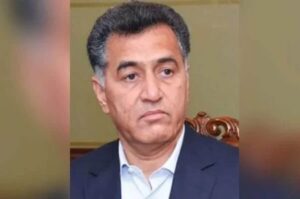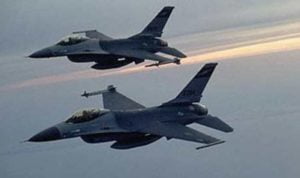SBP isn’t ready to bring down dollar in Pakistan
2 min read
KARACHI: The investors in Pakistan, after receiving payment from the Kingdom of Saudi Arabia on last Saturday, were expecting a big fall in greenback against the Pak rupee, but it couldn’t as the State Bank of Pakistan (SBP) is not following rules of market base valuation because of the International Monetary Fund (IMF) new restrictions.
According to the adviser to the Prime Minister Shaukat Tarin, Pakistan’s central bank had received an amount of $3 billion on last Saturday, but despite the rising of the reserves, the Pak-rupee could not come down against the US dollar in Pakistan.
The Saudi lending is estimated to improve Pakistan foreign currency reserves to $19 billion — excluding foreign currency deposits at local banks. Prior to the receipt of the kingdom deposits, Pakistan’s foreign exchange reserves stood at $16.01 billion in the week that ended on November 26, according to the central bank’s latest weekly update made on Thursday. Pakistan’s total liquid foreign reserves stand at $22.77 billion.
The SBP will also hold Monetary Policy meeting on November 14, earlier to its schedule, and the investors are also expecting an increase of 150 to 200 basis points increase in its discount rate as the six month T-bill yield is being traded around 11 per cent.
On November 19, the central bank had raised its benchmark interest rate by 150 basis points to 8.75% to counter inflationary pressures and preserve stability with growth.
The Pakistani rupee hit an all-time low of $176.77 against the greenback in the inter-bank market on last Friday. Accordingly, the country’s import cover improved to around two-and-half-month considering the monthly import bill hit a record high of $8 billion in November.
The estimated surge in foreign exchange reserves should stop the depreciation of the rupee and help it stabilise against the US dollar and other global currencies.
Pakistan is facing growing economic challenges with sliding foreign reserves, a widening current account deficit, a depreciating currency and high inflation.
The Saudi support package that included a $1.2 billion oil loan facility was agreed during Prime Minister Imran Khan’s visit to Riyadh last month.
The Saudi facility has come a week after the International Monetary Fund (IMF) agreed with Pakistan on measures needed to revive a stalled $6 billion funding programme.
The completion of the review, pending since earlier this year, would make available IMF special drawing rights, or around $1 billion, bringing total disbursements so far to about $3 billion, the statement said.




